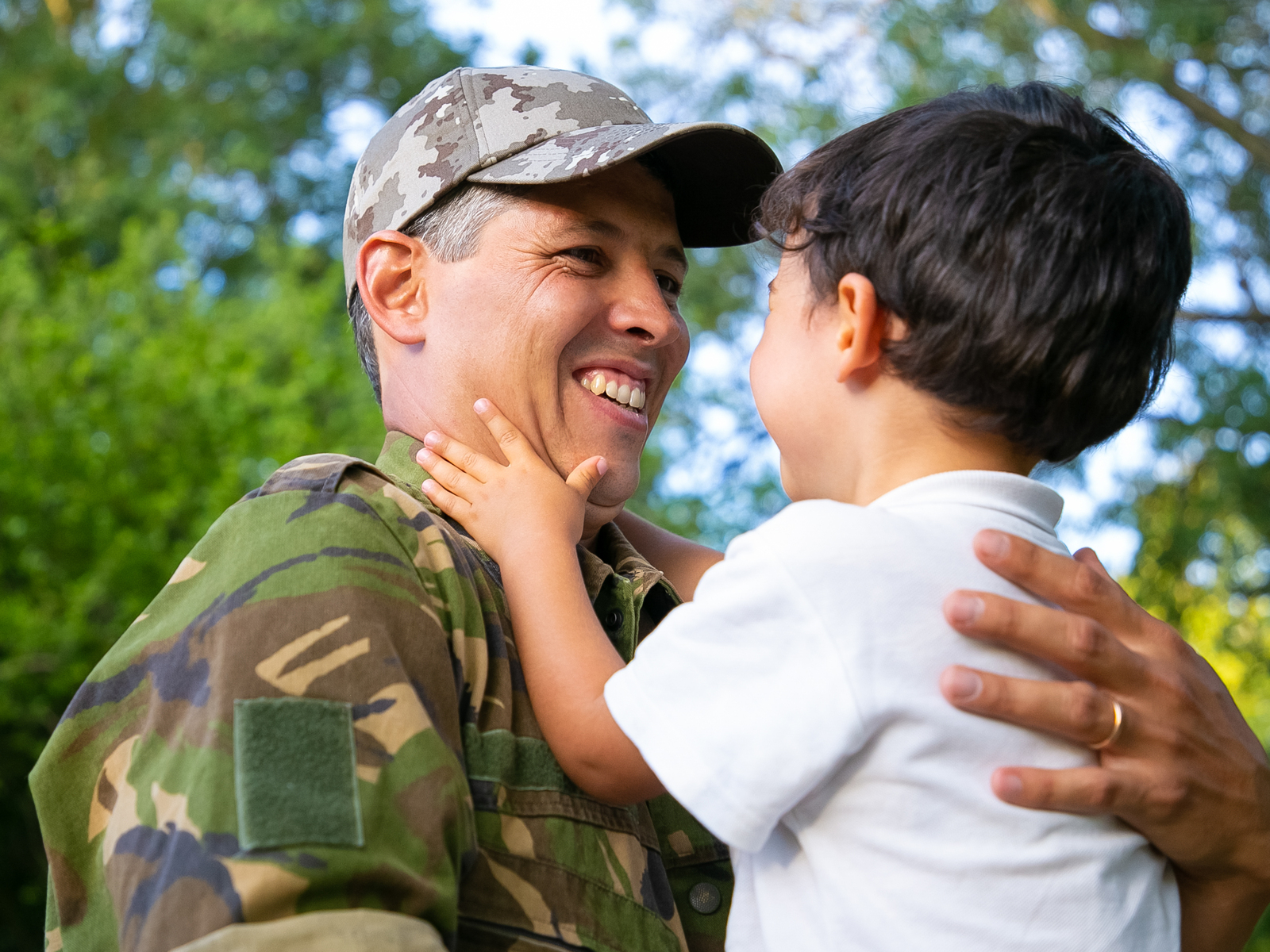November marks both Veterans Day and National Veterans and Military Families Month in the United States—key moments in the year where we recommit to honoring the service and sacrifice of our Veterans, brave individuals who selflessly have served our country with courage and strength.
Caregiving needs for Veterans and military families can be complex. According to RAND, there are 14.3 million military and Veteran caregivers (which represents 5.5% of the entire U.S. population), and these family caregivers are providing at least $119 billion worth of care to their loved ones every year.
Earlier this year, RAND worked closely with the Elizabeth Dole Foundation on a new study—“America's Military & Veteran Caregivers: Hidden Heroes Emerging from the Shadows”—that broke new ground in uncovering the landscape of care faced by so many Veterans and their families. Among some of their key findings:
- About 40 percent of Veteran caregivers are "sandwich generation caregivers," who also care for a child under 18 concurrently as they’re caring for a loved one who served;
- Caregivers lose more than $13,000 in annual out-of-pocket costs due to caregiving and lost household income;
- More than 70 percent of military and veteran caregivers felt that they were not listened to or that their input was not sought by their loved ones' healthcare provider
As Steve Schwab, CEO of the Elizabeth Dole Foundation shared after the study’s release:
“America has largely left the care of its service members and Veterans in the hands of their family members and friends, without ensuring that they are prepared or adequately supported.”
He added that these findings “are a wake-up call for the nation and force us to confront the consequences of continuing to thrust these tremendous responsibilities upon millions of selfless caregivers and their families.”
The urgency to better support our veterans and their families cannot be overstated. Through our work with thousands of military families over the past ten years, it’s immensely apparent that Veterans and their families face layers upon layers of care challenges that can delay, pause, stall, or prevent Veterans from receiving the care they need, deserve, and are owed for their service.
From navigating complex systems for benefits and resources, to needing long-term care support for years if not decades, to the intersectional care support required across physical, mental, emotional, and financial health, to even finding the right words for comfort, every day can bring unique challenges.
Tracking the full range of services available to Veterans extends to so many corners of our government and healthcare systems. Thousands of foundations, charities, and non-profit organizations offer support to Veterans, creating a vast but complex network of resources. For many families, it can be more than a full-time job navigating this landscape daily—even with dedicated caregiving support.
"Our Care Advisers are able to wade through the eligibility requirements and regulations that too often leave Veterans without the care they need," said Director of Care Angel Garza. "Often, Care Advisers are able to identify key benefits that even the Veterans didn't know they qualified for -- and make sure they are able to get access."
For Veterans and military families seeking support, key areas of focus often include:
- Navigating and accessing benefits and coverage offered through the VA, state, and local community;
- Completing a Veterans financial benefit application;
- Finding the right emotional support programs and mental health specialists;
- Smoothing the transition from the military to private citizenship;
- Financial support services;
- Housing asstiance;
- Legal guidance
While we formally commemorate our military heroes each November, our veterans and their families deserve year-round access to comprehensive care support and infrastructure they need. At Wellthy, we are proudly committed to guiding our Veterans and military families in navigating their complex benefits, and advocating for those who have bravely served their country—and the family caregivers who sacrifice so much to care for their loved ones.
Similar Articles


.png)
.png)
.png)